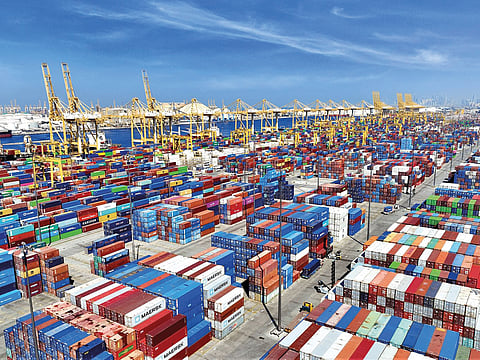Navigating Designated Free Zones in the UAE: What businesses need to know
Choosing the right Free Zone depends on the nature of business

To know more about UAQ Free Trade Zone, CLICK HERE
The strategic advantage of establishing a business in the UAE lies in its innovative free zones, positioning the UAE as a global hub for trade, logistics, finance, and innovation.
With over 45 free zones across the country, businesses gain unprecedented advantages including complete foreign ownership, significant tax benefits, and streamlined operations.
However, for businesses looking to operate efficiently, understanding the distinction between Designated and Non-Designated Free Zones is more critical than ever, especially in light of recent VAT and corporate tax regulations.
Designated Free Zones (DFZs) are specific areas that enjoy a unique legal status for VAT purposes. They are considered outside the UAE for VAT on goods, even though they are geographically located within the country.
This distinction is grounded in UAE Federal Decree-Law No. 8 of 2017 on VAT and elaborated through various Cabinet decisions. Businesses operating within these zones benefit from 0% VAT on the movement of goods between DFZs, provided the transactions meet certain criteria.
Specific criteria
When a free zone is listed as a DFZ, it is not automatically treated as outside the UAE for VAT purposes. To qualify for special VAT treatment, the designated free zone must meet four specific criteria:
First, the zone must constitute a clearly defined, fenced geographic area with controlled access points.
Second, robust security measures and customs controls must monitor all movement of goods and people in and out of the zone.
Third, the zone must implement formal procedures for storing, processing and tracking goods within its boundaries.
Finally, zone operators must fully comply with all Federal Tax Authority (FTA) regulations and reporting requirements.
Only then can certain supplies of goods be treated as outside the UAE VAT scope — making them VAT-exempt, provided strict documentation and movement controls are in place. However, supplies of services within DFZs still remain subject to the standard 5% VAT, and all businesses in DFZs are still considered ‘onshore’ for VAT registration and compliance.
The VAT treatment becomes particularly nuanced in specific scenarios. While intra-zone goods transfers may qualify for 0% VAT, certain supplies - including water services and energy goods for consumption - are always treated as UAE transactions subject to 5% VAT. Furthermore, goods moving from mainland UAE into a DFZ are considered taxable supplies at the standard rate.
Traders, distributors, as well as industries and manufacturing units, can greatly benefit from corporate tax advantages within a designated free zone. These zones offer a strategic environment, ensuring streamlined regulations that enable businesses to thrive and maximise profitability.
On the other hand, while non-designated free zones offer significant benefits like 100% foreign ownership and customs duty exemptions, they do not qualify for the VAT exemptions available in DFZs.
Choosing the right Free Zone, therefore, depends on the nature of business. DFZs are typically located near ports, airports, and logistics hubs, and are required to have customs-controlled, fenced premises. This setup may be suitable for businesses that depend on cross-border trade and bulk goods movement.
On the other hand, service providers or small enterprises targeting the UAE domestic market might find more value in Non-Designated Zones, where the compliance framework is generally more straightforward.
Corporate tax in designated vs non-designated
The UAE Corporate Tax law generally offers a 0% rate for Qualifying Free Zone Persons (QFZPs) in free zones (designated or non-designated).
However, tax experts highlight that one area where being located in a DFZ specifically matters is in distribution. According to Ministerial Decision No. (265) of 2023, for a Free Zone business to classify its distribution income as “qualifying,” the activity must be conducted in or from a Designated Zone, and the goods enter the UAE through that zone.
The Ministerial Decision No. 265 of 2023 specifically defines qualifying distribution activities to include the full supply chain - from importation and storage to handling and export.
The UAE corporate income tax law “does not provide for any activities subject to 0% tax specifically for designated zones, except for the activity of distribution of goods”, says Thomas Vanhee, a partner at Aurifer, a Dubai-based tax consultancy firm.
In other words, he says “all free zone licensees may potentially be subject to the QFZP regime and have their profits subject to 0%, but when it comes to distribution of goods, the activity needs to be conducted from a designated zone”.
Before establishing operations in any Free Zone, it is essential to verify its current designation status, as the UAE government periodically updates the list of approved DFZs.
Sunil Singh is a senior journalist working in the UAE
Sign up for the Daily Briefing
Get the latest news and updates straight to your inbox

